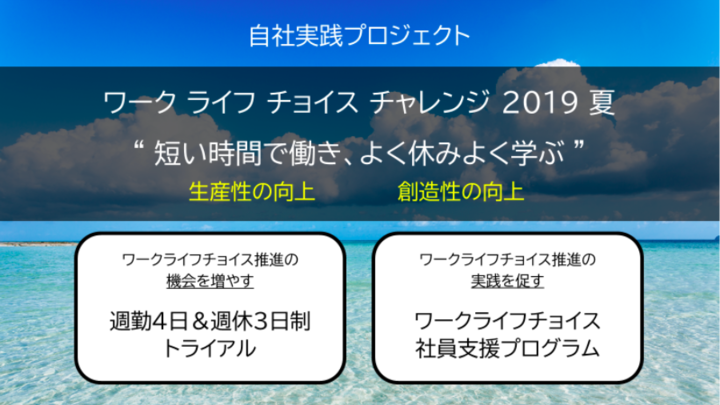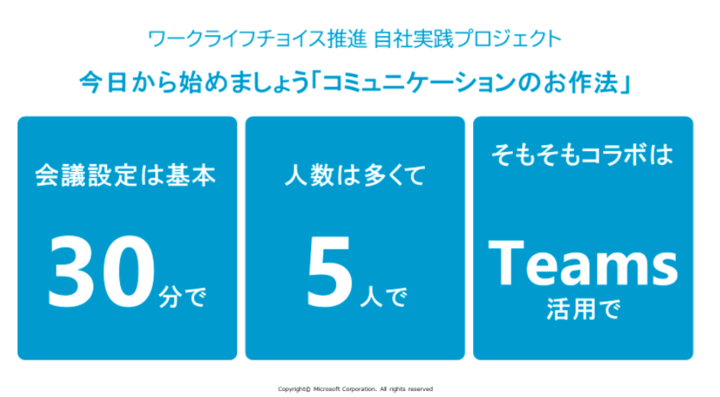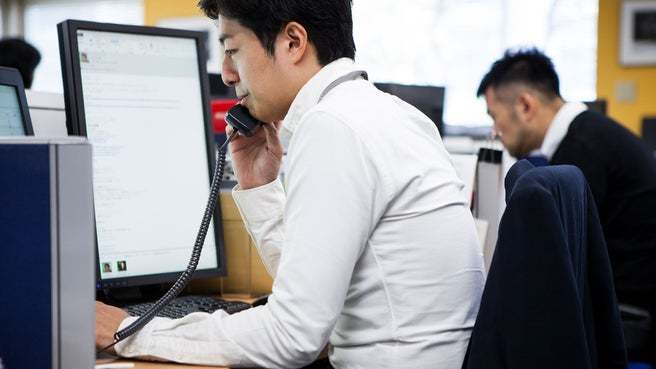Japan is one of the countries with the longest working hours in the world.
Based on a study by the Japanese government in a> Nearly a quarter of Japanese companies require employees to work over 80 hours a month without pay.
But in August of this year, Microsoft Corporation of Japan began experimenting with a new work plan allows employees to work only four days a week.
This is equivalent to a three-day weekend in a week, and Microsoft also gives them a normal five-day salary.

▲ Image from: theguardian
It sounds great, and it’s actually pretty good.
After August, Microsoft found that employees’ productivity increased by 40% compared to August 2018.
And, Microsoft Japan also saves on utilities and supplies, compared to the same period in 2018 Because employees are out of the office, electricity consumption is reduced by 23% and paper usage is reduced by 59%.
But the point is, why do these employees work less hours and are more efficient?
This is also from the plan called “Work Life Choice Challenge”.

Microsoft has delved into how employees spend their free time before devising a plan to get all employees (2,300) on vacation for five consecutive Fridays without reducing employee salaries.
Because working hours are reduced, the company also sets the standard time for the meeting< /a> Reduced from 60 minutes to 30 minutes, limited attendance to 5 employees, and used Microsoft’s collaboration platform to replace mail and meetings.

Besides work, Microsoft encourages employees to spend their time on volunteering, professional development, family time, etc., and subsidizes employee tuition, family travel, sports, and other activities up to 100,000 yen. RMB 6400) to “further increase employee productivity and creativity.”
It can be seen that through these initiatives, employees’ work and life are well balanced.
In the data collected by Microsoft, up to 92% of employees are satisfied with this adjustment, and 97% are satisfied with extra time to take care of the family and self-development.
Microsoft Japan Corporation President and CEO Hirano Zhuo said in the statement:
Working time is short, life is good, and there will be new gains. I want employees to think and experience: how to achieve the same results with a 20% reduction in working hours.
So this doesn’t really mean that the workload of the employees has decreased. But they have more personal space than they are “bundled” on their desks all day. This way, employees can concentrate more effectively during work and people are more likely to work more efficiently.

▲ Image from: gettyimage
Microsoft is not the first company to try to work four days a week.
Recruitment company ICE Group became the first in Ireland this year Ireland A company that has all its employees working four days a week, last year New Zealand real estate management company Perpetual Guardian has confirmed long-term four-day work policy, Because they found that during the policy trial period, employee productivity increased by 20%, not only increased attention to the office, but also reduced stress levels At 7%, employees become more punctual, happier, and more creative.
This is even more significant for Japan.
After all, Japan’s overtime culture is extremely serious, but overtime does not necessarily mean better work. According to the OECD Productivity Indicators Compendium, Japan has the lowest productivity among the G7 countries.
This country has even created its own extreme cultural term “karoshi”, which means illness caused by stress or severe depression, resulting in death caused by overwork, referred to as “overwork death.”

▲ Image from: orientaIdaily
Some companies in Japan have begun to provide greater flexibility to their employees, and the government has also launched A campaign called “Premium Friday” encourages workers to leave early on every last Friday of each month.
However, Microsoft has not yet indicated whether it will test the policy of the four-day week in other regions or permanently.
But they will conduct another experiment in Japan later this year. This time, employees will not reduce their working hours, but they will be able to adjust their time flexibly and often get together to share ideas about work, rest and study.

▲ Image from: unsplash
The end result is that it will remain to be seen to continue to maintain the status quo or change working hours.
However, if Microsoft can change the rules of the working day as a large technology company and confirm that the rule is more beneficial, it can also bring hope to more companies around the world to shorten the working day.
The title map is from: unsplash